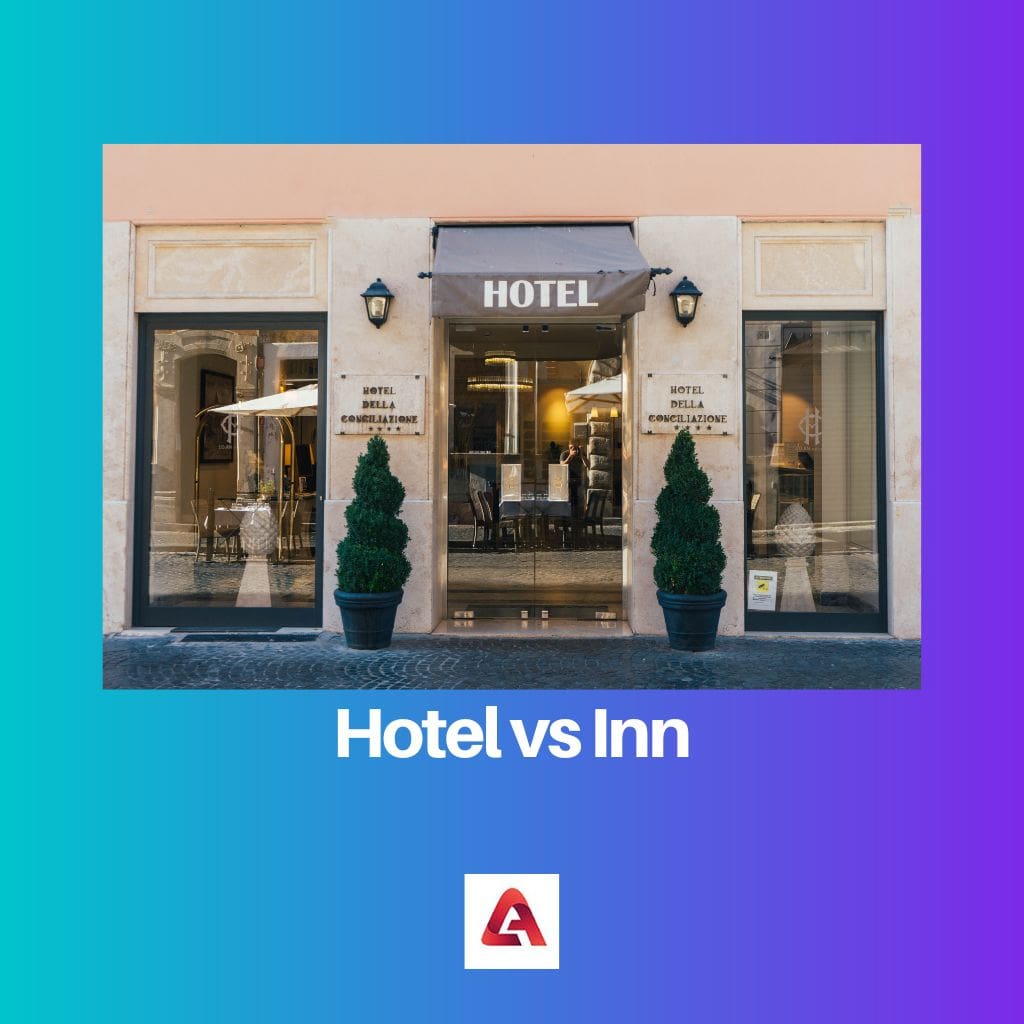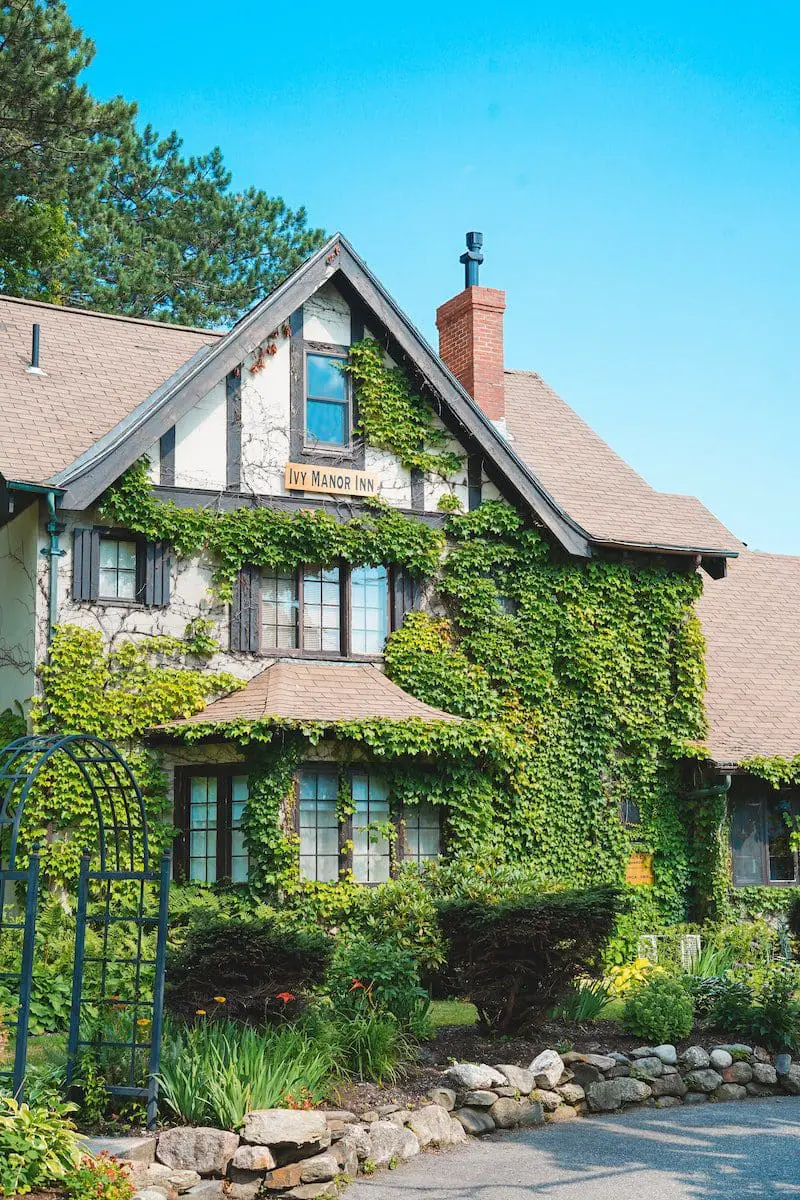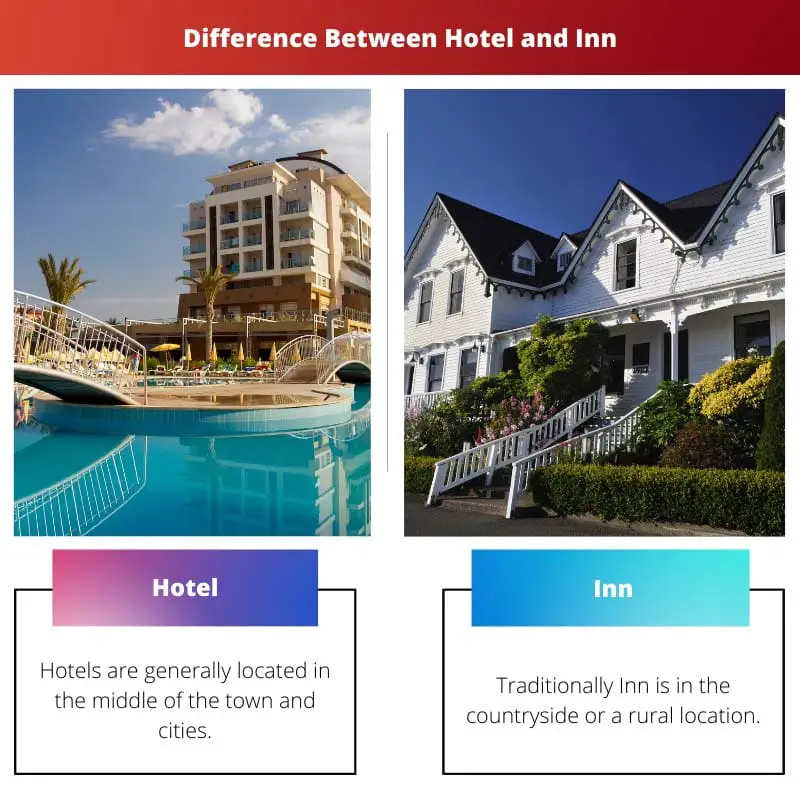The hospitality industry is a booming sector with ongoing advancements and the connectivity of people across the globe. Tourism has become a country’s way of generating revenues, bringing various job opportunities.
It falls under the service area, where people are provided with all the necessities required, like lodging, food and drink service, event planning, etc.
Shelter and lodging are the very basic requirements for an individual after food. For living permanently or while traveling, one seeks a suitable place with basic requirements, or more than that based on the status and money in the pocket.
For living temporarily while traveling from one city to the other or one country to another country, the establishment of Hotels and Inns has helped travelers for generations.
Key Takeaways
- A hotel is a commercial establishment that provides lodging, various amenities, and services to guests and features multiple rooms or suites, with a private bathroom.
- An inn is a smaller, more intimate establishment that provides lodging. It may also offer food and beverage services, with limited rooms and a more personalized, home-like atmosphere.
- The primary distinctions between a hotel and an inn involve their size, amenities, and atmosphere, with hotels offering more rooms and a wider range of services. In contrast, inns focus on a cozier, more personalized experience.
Hotel vs. Inn
An Inn is a small accommodation place that can hardly adjust a few people. It does not have various facilities and is located in the countryside. A hotel is a large building designed for many customers with various facilities, including technology and an advanced interior.

Hotels and Inn are used interchangeably because both fall under a similar service area, but both are poles apart and have a thick line of differences.
Before even booking a room, it becomes necessary to understand those differences and what services can be expected.
Comparison Table
| Parameter of Comparison | Hotel | Inn |
|---|---|---|
| Location | Hotels are located in the middle of the town and cities. | Traditionally Inn is in the countryside or a rural location. |
| Size | A hotel can accommodate a much larger number of guests because of the grand size. | An Inn can hardly accommodate a larger number because of the building size. |
| Architecture | The layout and construction are created with hundreds of rooms and facilities like elevators, and corridors that direct the visitor. | A typical inn would have a less advanced interior and exclude facilities like elevators because the building size is a maximum of 3-4 floors. |
| Services | Hotels employ different staff services, from receptionists to bellhops and housekeepers. They can also have entertainment facilities like swimming pools, laundry, and a spa. | Inns do not employ a wide variety of staff like a hotel, and the services are less. |
| Period | Hotels provide a comparatively long-term service, and one can stay for a couple of months as the rooms are enough. | Inns do not employ a wide variety of stuff like a hotel, and the services are less. |
What is Hotel?
A hotel is a commercial establishment falling under the hospitality sector, serving lodging and food for a long time.
The word originated from the French word hôtel, which referred to a building seeing frequent visitors. In the modern sense, the first-ever hotel was in Exeter, and soon Europe and North America began with the development of more such hotels that accommodated travelers.
Hotels can vary and be classified in size, location, facilities, and expenses. The ratings can be in the form of stars and diamonds, depending upon the quality provided.
A typical hotel will be multi-story, with basic requirements like beds, furniture, a telephone, a washroom, and facilities such as a Tv and an air conditioner can be there. A luxurious hotel can have a swimming pool, spa, conference hall, and gyms.
The staff employed may vary to different jobs: receptionists, waiters, room service department, staff dealing with the laundry, etc. The management is well organized, and the architecture supports a worthwhile experience.

What is Inn?
An inn is an establishment for hospitality purposes; they came before hotels and helped travelers in lodging and grabbing food and drink.
They are historic; before the motor vehicles, people used to come in horses, so the inn provided accommodation for horses too. They are said to have originated in Europe.
Traditionally, Inns are located in the countryside or rural areas, although currently, it’s a much loose term and can be found all around.
They are less costly and can accommodate enough people; the architecture is not designed for a large chunk of the population. The building can be a maximum of 4 stories.
Basic requirements are available but lack facilities like room service and laundry. They also don’t have a rating system because of a small establishment.
The employees are in less amount and the accommodation price isn’t huge like hotels, the lodging period is relatively lower.

Main Differences Between Hotel and Inn
- The main difference between Hotel and Inn is that the former is comparatively bigger and can easily accommodate hundreds of people. In contrast, an Inn cannot be bigger than 3-4 story buildings, thus accommodating lesser guests.
- Mostly Hotels are placed in the center of the city and middle of towns, whereas traditionally, Inns used to be in the countryside.
- The architecture in both of them is created as per the accommodation purpose; Hotels are constructed to accommodate hundreds of people; hence the rooms are more, and the size and interior of rooms can vary from the perspective of rates; inns are not designed to serve aesthetics, they are mere rooms.
- Hotels employ staff that caters to every need, a receptionist, bellhops, and housekeepers, all assigned tasks; an Inn, however, has fewer staff, and a single man might be doing different tasks.
- One can easily book a hotel for months, whereas Inns are for lesser days because of few room accommodations.






